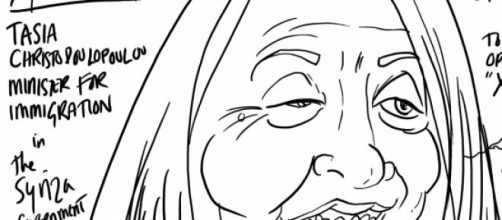Two weeks' ago, Frans Timmermans and Federica Mogherini announced a new EU wide refugee plan that would spread asylum seekers across the continent on a quota system.
The idea seems promising. However, the terminology in the statement is ambiguous, because what it is talking about, I think, is the residence of those people who are "allowed to stay" in the EU. Far more are processed on the spot and told to head back to the border. As far as I can see, there will still be massive holding camps, therefore, in those frontline EU countries where the borders are most porous.
I lived in Greece for many years and saw, at first hand, the surge of refugees entering the country from Albania and Turkey.
Today, there are many more people coming from Turkey, having travelled first from Syria or even from Africa. Recent reports say the Turkish authorities are letting people board ordinary ferries to islands like Lesbos. The Greek coastline is vast and there are good reasons why the Turkish authorities might be lenient - there has been a 30% increase on last year in migrant deaths, the spectre of more bodies washed up from failed crossings, the scandal of people traffickers, as well as the sheer pressure on Turkish police. In addition, Turkey has granted de facto asylum to 1.6 million Syrians, with 22 government camps run near the Syrian border, but it is reaching saturation point.
When I lived in Greece in 2001, asylum seekers made the crossing from Turkey to Kos in fewer numbers, but it was already a recognised route.
Some forded the river at the Turkish border in the East. Today, though, the number using the land crossings, (over 50,000 in 2011) has dwindled as a result of "operation Aspida" and fortifications built around the Evros border crossing; barely 2000 crossed the land border last year, and boats are today the riskier but preferred option.
The Greek Prime Minister has called on the EU to take urgent action to tackle immigration - he talked about the Mediterranean as a "graveyard" and the southern EU countries as "a storage of human souls". In 2014 alone, 45,500 asylum seekers were detained in Greece. The new immigration minister, Tasia Christodoulopoulou, wants to see fewer children held in camps, more second-generation migrants offered Greek citizenship and the reduction of the standard 18-month period of detention.
But, what these policies mean in practice is that large groups of migrants have moved to the bigger cities, particularly Athens and they have been met with a wave of hostility from communities stirred up by far-right activists like "Golden dawn".
The new EU initiative seems, in part, to be a response to Syriza's demand for a common EU policy, but Greece still needs practical help on the ground tackling the sheer quantity of people turning up and while it recently asked the EU for emergency funding of some 500 million Euros, that was before the recent surge began earlier this month.

